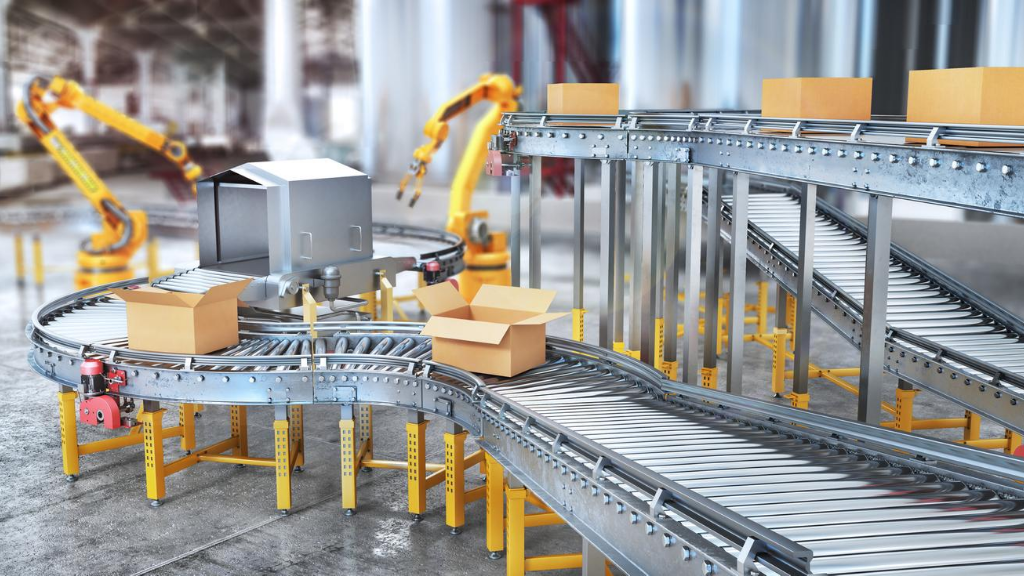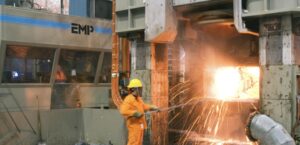Why ERP is the Backbone of Your Manufacturing Business

Enterprise resource planning (ERP) links a variety of business functions across an entire enterprise. It enables data sharing, planning, and decision-making on an organizational level. Departments and tasks, such as sales, accounting, inventory control, productivity, and human resources, are connected to a centralized database to provide real-time access across an organization.
You might not know that ERP gained visibility in the mid-1990s and was still being developed into the mid-2000s. Back then, it was primarily in the province of large manufacturers, mostly because those early systems were expensive (costing upwards of $2 million) and could take as long as four years to implement.
Fast forward to 2020, where the global ERP software market is expected to be worth more than $40 billion by yearend, and could reach a mind-boggling $70 billion by 2025. But as remarkable as those numbers are, there are still manufacturers who don’t yet understand why ERP is so critical for their operations.
As globalization continues to pressure the market for many industries, process manufacturers, in particular, must consider any tool that can give their business a competitive advantage. ERP can do just that in the following ways.
ERP saves manufacturers money through integration.
ERP links the people, processes, and data in your business for optimum productivity. It combines the previously fragmented systems and allows your employees to access the tools they need to do their jobs, all from one centralized system. With the central database, your people can access information quickly and use their time more efficiently.
Much of the savings that many manufacturers experience come from the ERP system eliminating the need to train users on several systems. Companies do not have to set up several training sessions with various vendors, which creates less logistical efforts and fewer expenses.
ERP improves and enables collaboration.
The central database helps to keep all projects flowing. Everyone working on the project will have access to information that has been compiled and stored on one system. It can now be shared and accessed without any fears of inaccurate or incomplete data. The ease and speed with which data can be retrieved and utilized improves collaboration and helps your teams to bring projects in under budget.
ERP offers real-time analytics and insights.
Once again, credit goes to the central database of information for improving a facet of the business: this time, analytics, and reporting.
When the ERP records and stores data, it becomes a business intelligence tool. The software can generate a variety of reports—such as analytical reports, income and expense statements, and KPIs–very quickly. Reports that would have taken days of research and composing using old-fashioned methods will take minutes with an ERP.
ERP enables higher productivity across an organization.
Tedious and time-consuming tasks were inevitable when businesses used traditional methods. Generating reports, keeping track of inventory, manual timesheets, and processing orders are notorious time thieves. Not only that, but they also opened a business up to the possibility of human error.
An ERP solution automates those tedious tasks and eliminates redundant jobs such as data entry, allowing the ERP system to perform any advanced calculations in minutes. Team members are free to do work that can’t be automated, which boosts the company’s productivity and profitability.
ERP gives companies greater control over inventory.
ERP uses barcoding, RFID tags, and serial numbers to monitor inventory at every stage of the supply chain. The tools keep track of inventory levels at different warehouses, show any items in transportation, and let you know which products are on the shelves. The excellent warehouse visibility improves the pick, pack, and ship process substantially.
ERP empowers workforces.
ERP systems are the backbone of most successful manufacturers. That’s because the proven way to design a productive company is by empowering the workers to produce more effectively and more efficiently. ERP provides employees with business software tools that work much like the tools they use every day. As individuals and members of your team, your employees can do their jobs efficiently and meet or surpass their goals with the help of an ERP solution.
The ERP experts at Decision Resources are ready to provide the partnership your manufacturing enterprise needs to streamline functions, improve productivity, and introduce and maintain an integrated and more efficient way of doing business. If you’re ready for a partner to help you to take a step toward transforming your business with an ERP, please get in touch through our online contact form, call 412-562-9660, or email us at info@decision.com.
Similar Blogs

Chips, drugs, and steel — how to prepare for Trump tariffs

How Steel Manufacturers Forge Ahead with Infor CloudSuite Industrial ERP





